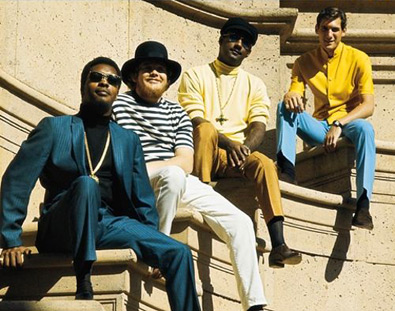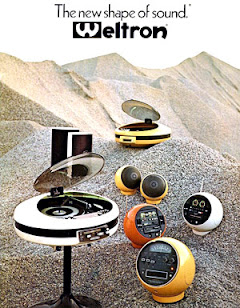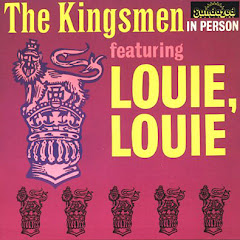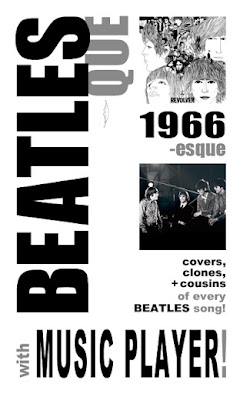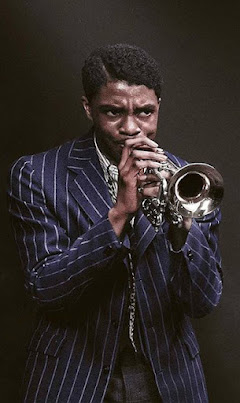The British saved Rock'n'Roll.
The usual rap goes that there is a gap between the implosion of the first Rock'n'Roll stars (1959) and the phoenix nova of The Beatles (1963). In this pop wasteland, prefab pretties like Fabian and Annette pantomimed and pretended. The truth is better. This is actually an intensely fertile time of expansion in the wake of that first Big Bang of Rock. It'd be unfair and unaware to overlook this early 60's hotbed: the adolescent opera of the Girl Groups; the Motown machine revving up; the grand epics of Phil Spector; the turbo fun of Brian Wilson's bunch; the kick-azz grit of the Chess Records mob; and the ascent of Soul music under the wings of Ray Charles and Sam Cooke. But of these, it was Surf music that most retained the bristling edge of Rock. With its full-throttle fearlessness, it preached the virtues of speed, clamor, and sleek power. All of these new influences enthralled european teens, but it was that guitar that spurred them into magnificent action.
First up, there was the british Rockabilly star, Tommy Steele ("Doomsday Rock"), then leather-god Vince Taylor (the original "Brand New Cadillac", covered by the Clash), and Johnny Kidd & The Pirates ("Shakin' All Over"). Then brilliant producers like the eccentric genius Joe Meek came in with his guitarstrumental bands. Meek, a secretly unhinged dandy, was a tech wizard who concocted weird sound instruments in his apartment studio and recruited acts to justify their use on pop records. His oeuvre straddles prom rock shuffles, Les Paul's outlandish Jazz scales, the bubbly pizzicato pop favored on government sanctioned radio, and an obsessive penchant for otherworldly tones. Plus, he idolized Buddy Holly and the hard echo of Duane Eddy and Dick Dale. All of this hit a beautiful equinox with The Tornados' "Telstar" (1962). Its eerie interstellar metallic vibrato shocked radio listeners like an Orson Welles broadcast and ushered the guitar wave of The Tornados and The Shadows and art school rockers everywhere.
Art school was the only bastion for the rebel in such a rigidly classist society. England was now a working class nation tyrannized by a mass delusion of elitist civility that was crushing its earthy heart. The War had destroyed them, the 50's was all about picking up the pieces. While parents clung to status quo for stability, their children wanted something more. Rock'n'Roll was like a reverse blitzkrieg. It was a wave of concussive renewal and creation. They were riveted by the foreign-ness of it, but also by the familiarity of it. In the raucous roll of Chuck Berry, Little Richard, and Bo Diddley they could hear the robust tavern ballads of warrior pasts. In the ethereal country hymns of the Everlys they could hear celtic madrigals. In the plaintive strains of Hank Williams, Buck Owens, and Patsy Cline there was the Olde Country folk of troubadours, brought home more closely by the emerging Bob Dylan. In the coiled cool of Howlin' Wolf and Muddy Waters they heard the course rounds of feudal farmers. In orchestral pop soared the strings of their Classical heritage. In the immigrant shangri-la of America they saw amplified and unleashed versions of themselves, risen shining and sleek for the future in the wake of the war. And the ticket to freedom was three chords and a hook!
John Lennon wasn't the only art school drop-out to take up a guitar, but he formed the band to beat all bands. The Beatles were the Biggest Bang, from which everything else would unfold from then on. This is a Law of Physics at this point, so we'll get on to the initial effects. The first was the galvanation of this galling nation of sharp-dressed men with impossibly long hair setting prim young girls on fire with jet-engine hysteria. The second was synthesizing everything from before into a new world of possibilities. The third was to give permission to everyone to be whatever they wanted.
The bands started as retro-revivalists turned into pop futurists turned beat ambassadors. Soon every group in the British Invasion splintered into smorgasbord shards. The blues purists birthed John Mayall's Bluesbreakers, The Rolling Stones, The Animals, and The Yardbirds. The pop pundits cheered Gerry & The Pacemakers, the all-female Liverbirds, The Searchers, and The Kinks. The R'n'B contingent numbered The Who, The Pretty Things, The Spencer Davis Group (with Steve Winwood), Dusty Springfield, Chris Farlow, and Georgie Fame. Donovan ushered in the Folk rebound.
Then quickly, the triumph over America prompted a domino escalation that opened a new door every day with every record over the next several years. Beat groups like The Who and acolytes like Les Fluer de Lys and The Creation started getting more aggro, pumping out a fuzzy delirium later dubbed Freakbeat. With The Yardbirds getting more sonically intense, this ricocheted in rehearsals all over America in the first Garage Rock bands. The Beatles were now exploring all the sounds they'd heard on world tours. A crosscontinental one-upship ensued between the Fabs, Dylan, Brian, the Byrds, and anyone in the wake. This produced an exponential wave of some of the greatest songs and albums ever made. Every style, every madcap instrument, every incredible new studio technique became fair game. As the newly revitalized Rock went both toward the brutal and the beautiful, it began converting the planet.
Rock'n'Roll was here to stay, it could never die. It now belonged to the world.
© Tym Stevens
See Also:
• BEATLESQUE Songs: 1963-esque, with Music Player!
• DON'T TREAD ON ME: The Original Punk of 1960s Garage Rock, with Music Player!
• HERE IN PURPLE VELVET NOW: The Psychedelic Revolution, with 2 Music Players!
• LADIES FIRST: "I Can't Let Go" - Evie Sands > The Hollies
• LADIES FIRST: "Can't You Hear My Heartbeat?" - Goldie And The Gingerbreads > Herman's Hermits
• LADIES FIRST: "Needles and Pins" - Jackie DeShannon > The Searchers
• "She's Not There" - Bessie Smith + The Zombies = Malcolm McLaren
• "Don't Let the Sun Catch You Crying" - Ray Charles > Gerry And The Pacemakers
• The Real History of Rock and Soul!: A Music Player Checklist


